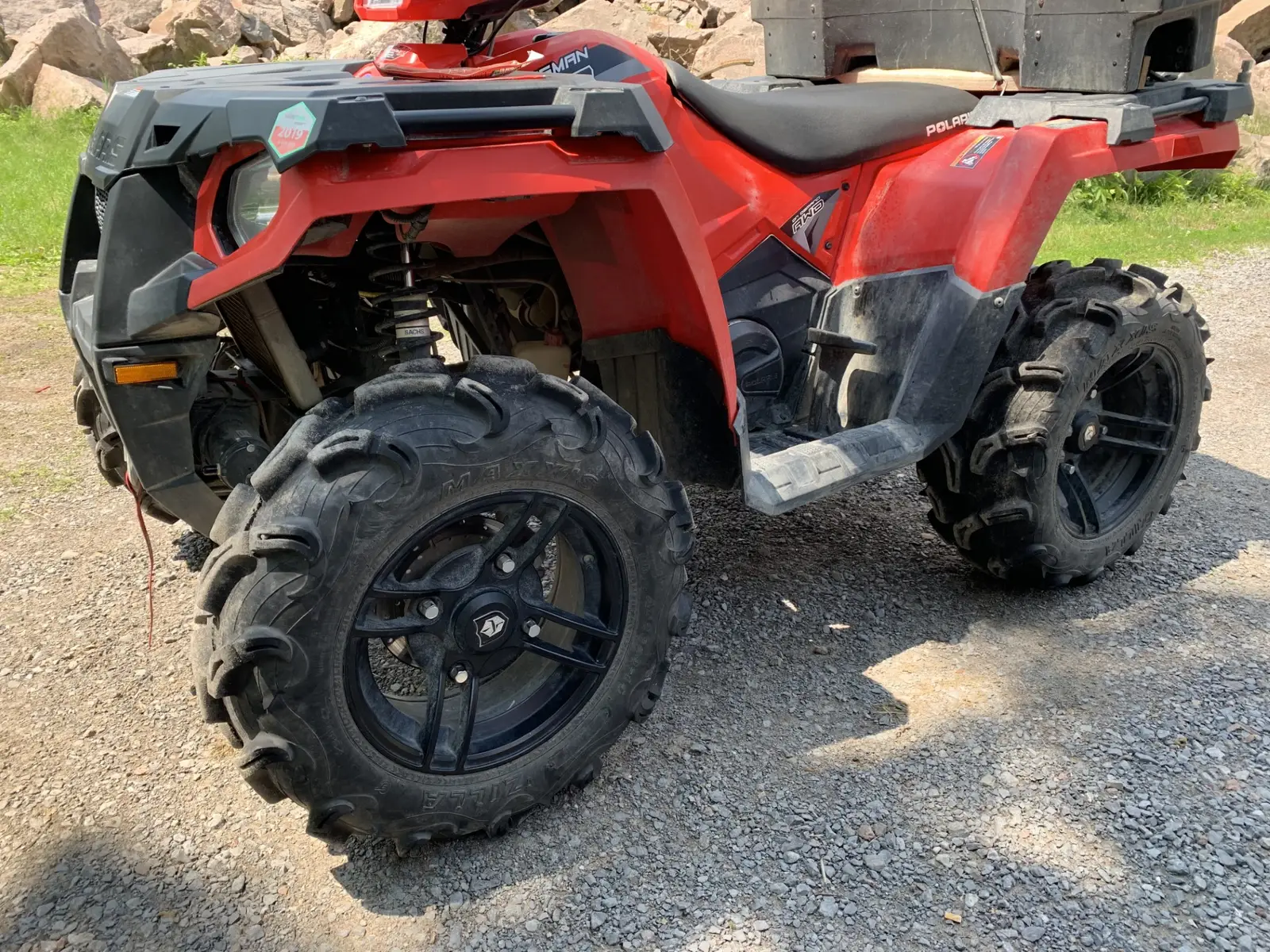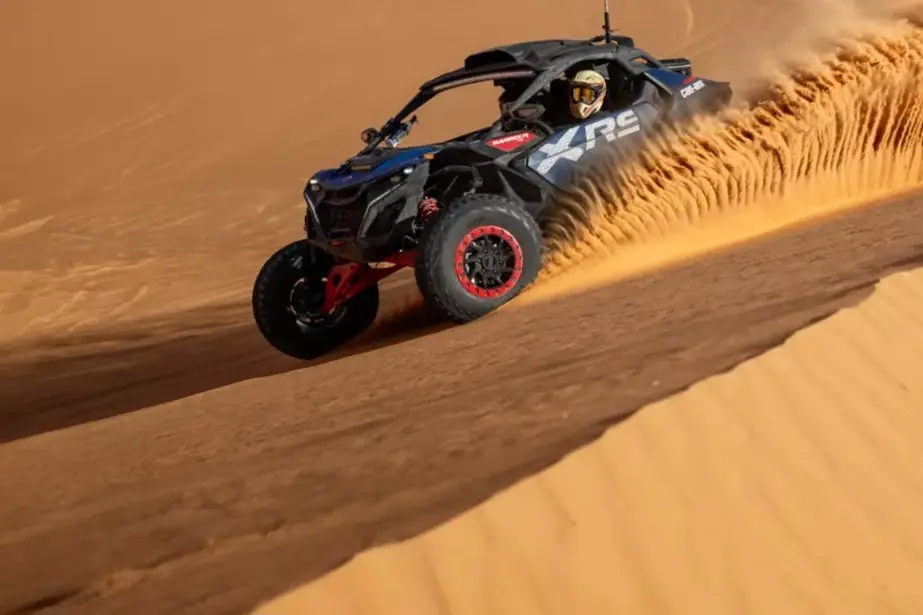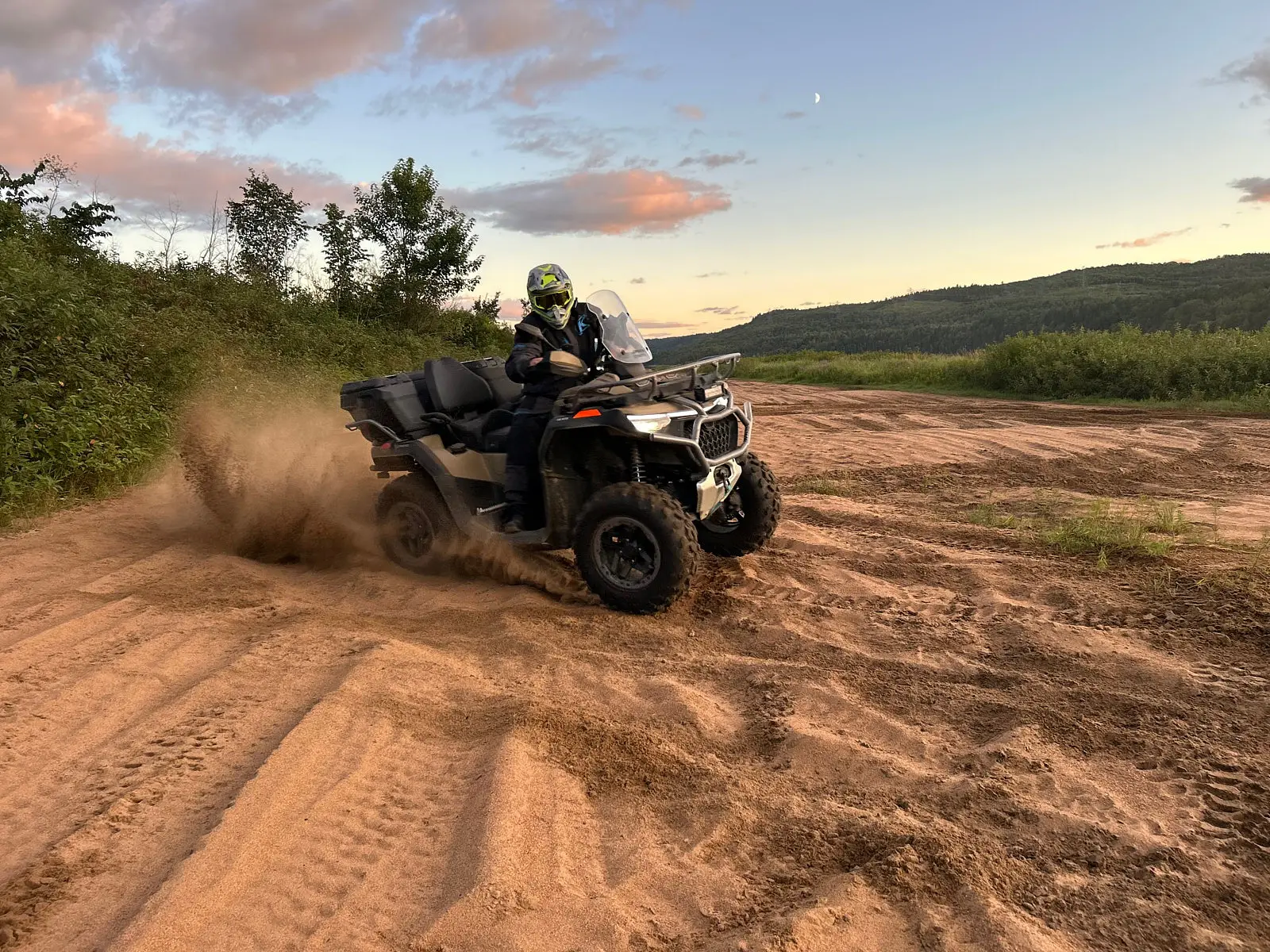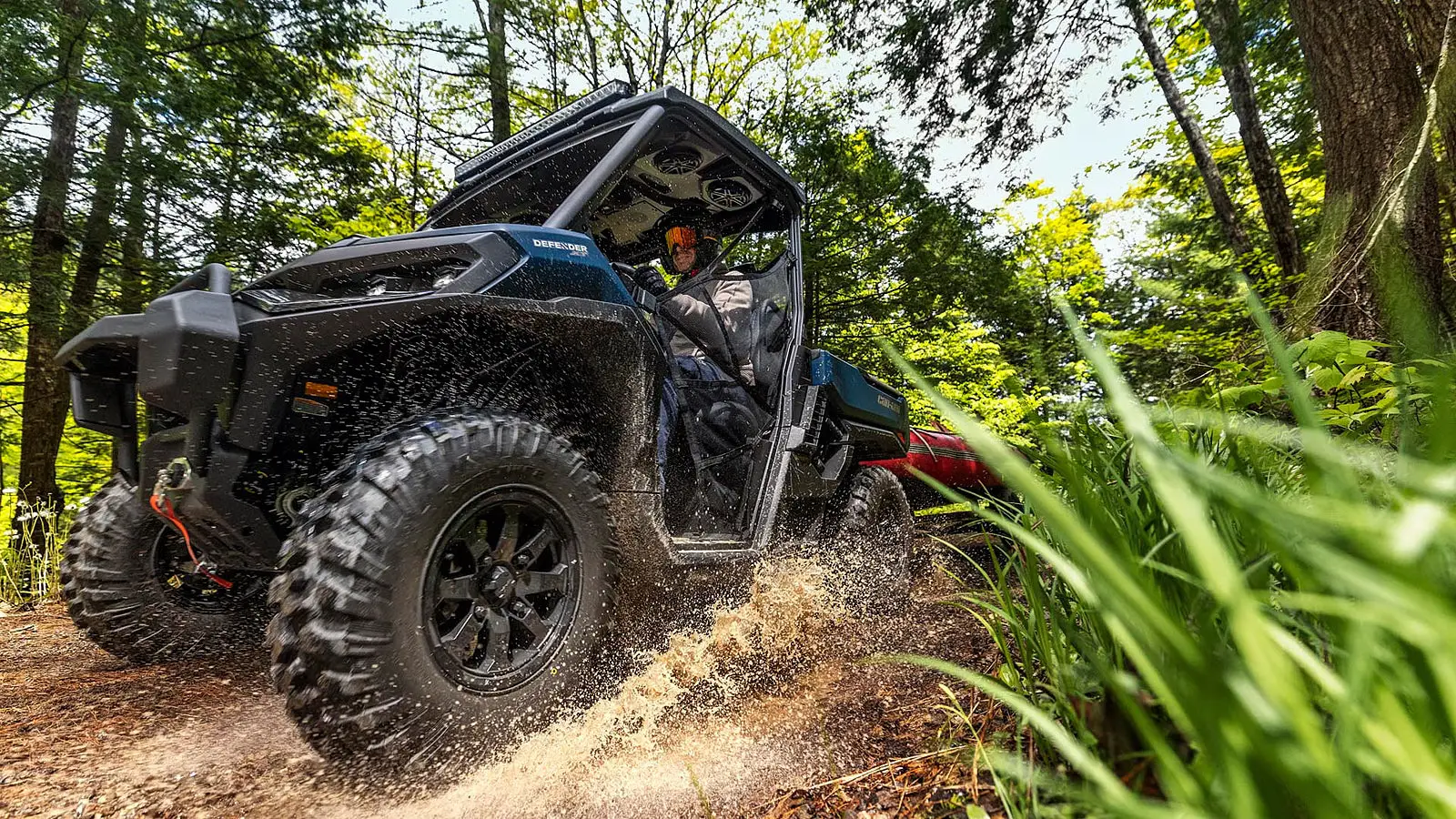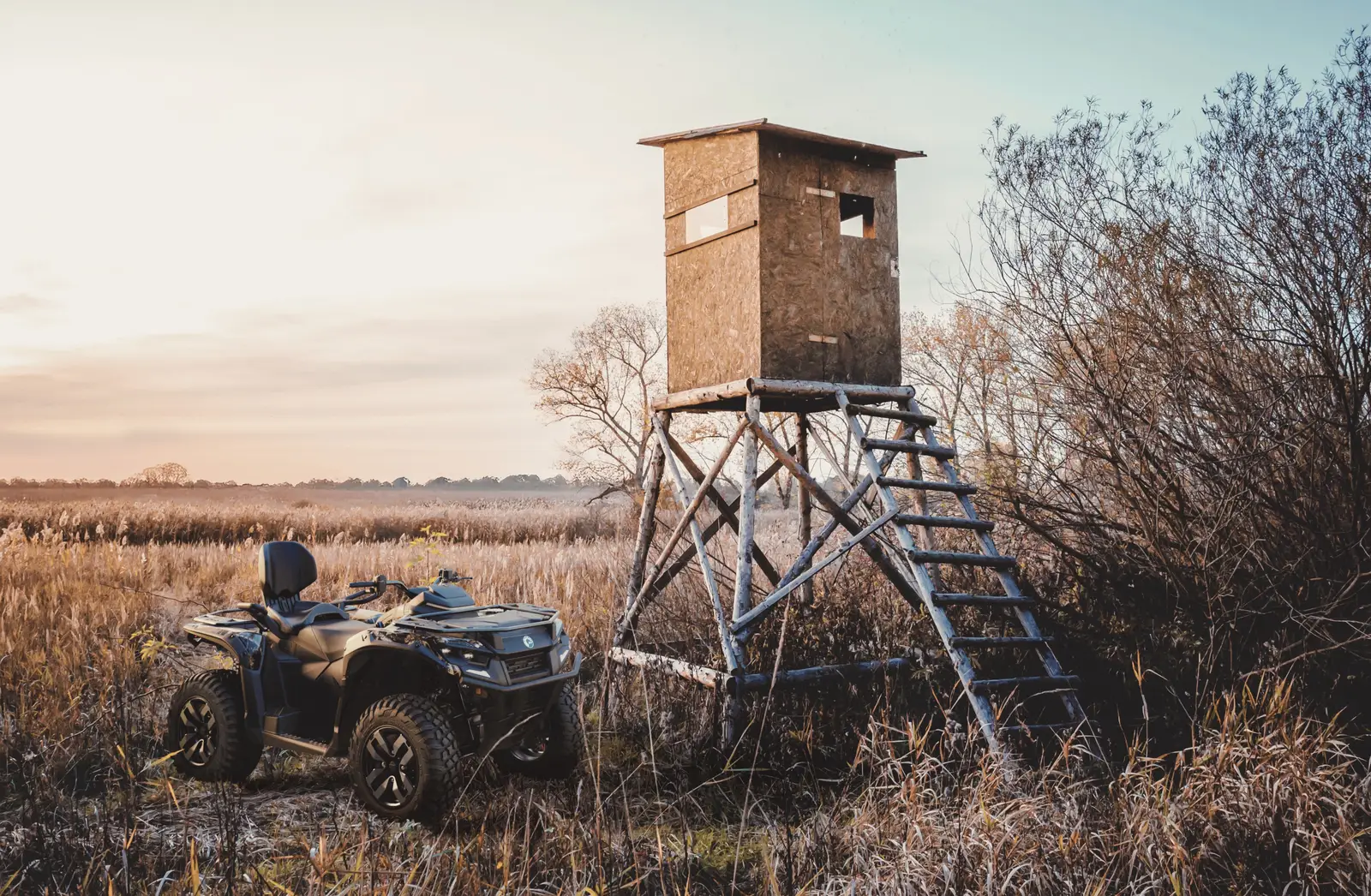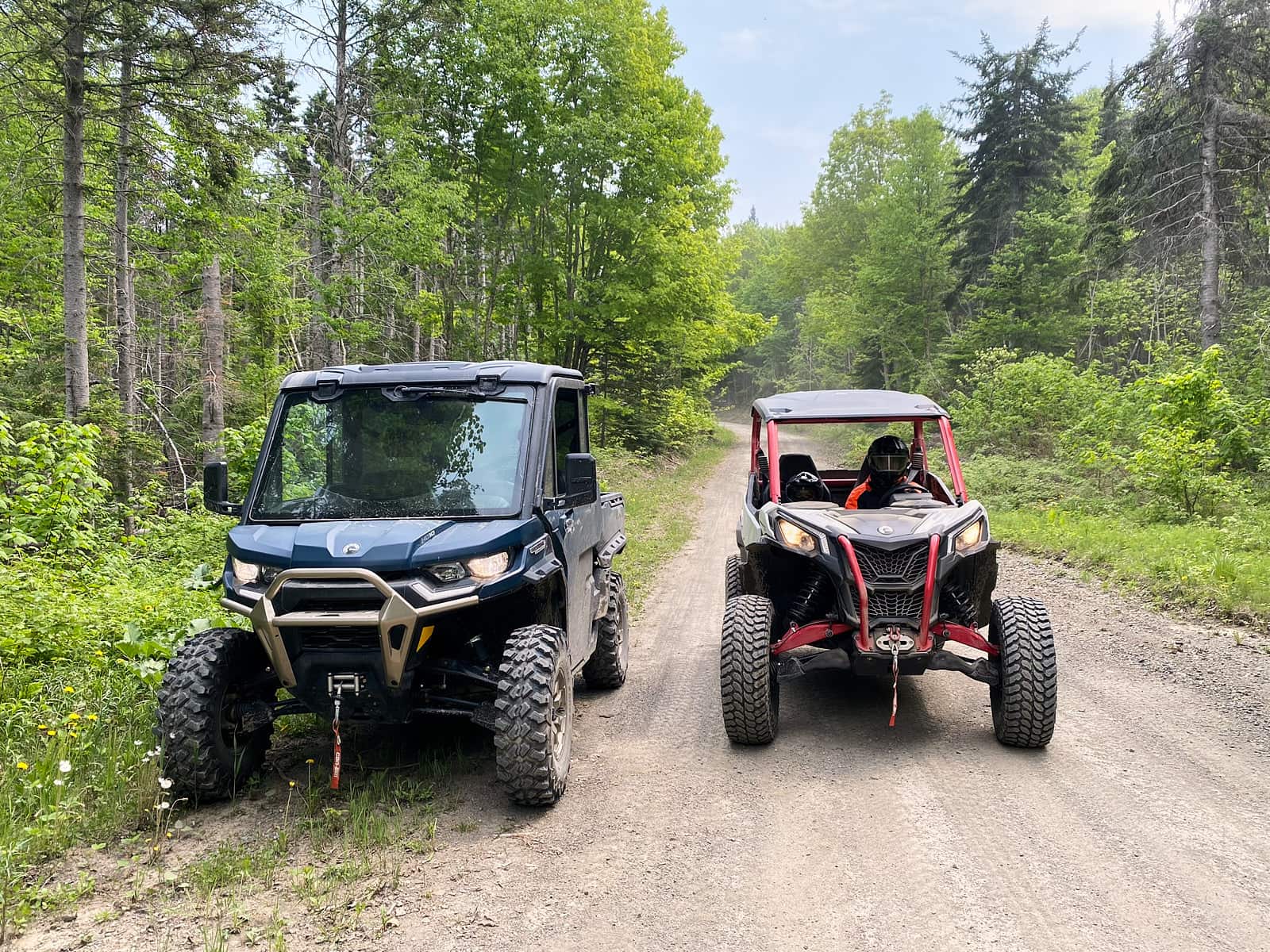Table of contents
ToggleAs spring arrives, choosing the right tires for your quad or side-by-side is an important decision that can have a significant impact. Tires are not just an accessory; they are an essential component that can enhance the riding experience on various terrains. With this in mind, let’s take a closer look at the technical features of trail, mud, and multi-purpose tires for your quads. I will also provide some concrete examples.
What You Need to Know Before Starting
Besides the number of plies and the size of the lugs, you need to know the technical details. The rubber compound used, the carcass design, and the tread pattern play a role in tire performance.
A softer rubber compound can offer better grip at cold temperatures or on slippery terrains, while a harder compound will be more durable and resistant to abrasion.
The carcass design also influences the flexibility of the tire and its ability to absorb shocks. A “radial” carcass allows the tires to better adapt to terrain irregularities, providing better driving comfort. In contrast, a diagonal carcass will generally be stiffer but offer better resistance to side cuts. Each has its strengths and limitations.
The tread pattern is also crucial as it determines how the tire interacts with the ground. A more open tread pattern will be advantageous in mud or sand, while a more closed pattern will be preferable for hard or paved surfaces, offering more comfort in driving as well.
Finally, it’s important to note that tire choice should also consider the weight of the vehicle, the type of use (recreational, competition, work), and your personal driving preferences. Good tire maintenance, including regular pressure checks and bolt torque, is very important for your safety and comfort.
Trail Tires
Trail tires are often the main choice for quad and side-by-side drivers looking for a good balance between off-road performance and on-road comfort. Technically, these tires are designed with a number of plies generally ranging from 4 to 8, providing increased resistance to impacts and punctures.
Medium-sized lugs offer optimal traction on varied surfaces without excessively penalizing rolling resistance, which is crucial for maintaining fuel efficiency. For example, the Maxxis Bighorn uses a radial construction that allows for better shock absorption and more uniform tire wear.
Maxxis Bighorn
The rubber compound used in the Maxxis Bighorn is designed to offer maximum resistance to abrasion and cuts, which is very important when driving on rocky or obstacle-strewn terrains. The lugs on the Maxxis Bighorn are arranged to provide maximum traction on a variety of surfaces. Height and shape of the lugs are designed to offer a good grip while maintaining a level of comfort on the road. The number of plies varies depending on the model, but they generally offer good load capacity and increased resistance to impacts.
A notable advantage of the Maxxis Bighorn is its performance on mixed terrains. Whether you are crossing dirt paths, rocks, or streams, these tires maintain consistent and reliable grip. The new version has even improved their lifespan against wear.
Mud Tires
This type of tire is specialized for extremely muddy terrains where traction is crucial. These tires have distinct technical features such as aggressive and deep lugs that can measure up to two inches in height. They are also designed with wider spaces between the lugs to facilitate mud evacuation and prevent accumulation that could reduce traction. The number of plies on these tires can go up to 6 or more, resulting in a robust structure capable of withstanding the toughest conditions. The ITP Mud Lite is known for its directional tread pattern that improves traction in mud while allowing precise control.
ITP Mud Lite
ITP Mud Lite tires are made for quad and side-by-side enthusiasts seeking high performance in the muddiest conditions. These tires are recognized for their ability to offer excellent traction in mud while being versatile enough to be used on other types of terrains.
From a technical standpoint, the ITP Mud Lite stands out with its unique construction that combines lightness and strength. The rubber compound is selected for its durability and its ability to provide a good grip in wet and slippery conditions.
The tire’s construction is reinforced with a number of plies suitable for resisting tears and punctures encountered in off-road conditions. They also have very good wear resistance.
Multi-Purpose Tires
Multi-purpose tires need to handle a variety of conditions without being specialized for one particular type of terrain. They are often constructed with a number of plies ranging from 4 to 6, offering good resistance without being too rigid or too heavy.
The design of the lugs is a mix between trail and mud tires, with a height and spacing that provide good grip on various types of surfaces. The Carlisle AT489 is an excellent example with its lightweight construction and tread pattern that offers good traction while being gentle on less-demanding terrains. However, this tire tends to wear out quickly.
Carlisle AT489
The lugs on the Carlisle AT489 are arranged to provide effective traction without being too aggressive. This makes it ideal for drivers who spend time on dirt roads or grassy surfaces. The height and spacing of the lugs are designed to offer a good grip while allowing the tires to clean themselves easily, thus preventing debris accumulation.
A notable advantage of the Carlisle AT489 is its tread profile, which offers a comfortable and quiet ride on the road while being capable of handling off-road challenges. This makes it an excellent choice for those who use their quad or side-by-side for both recreational activities and daily tasks.
Personally, these are the tires that came with my side-by-side when I purchased it. I had to change them after 2,000 km because they were already too worn out. Therefore, I do not recommend them for prolonged use, although their quality is evident.
My Personal Tire Choice: Maxxis Zilla
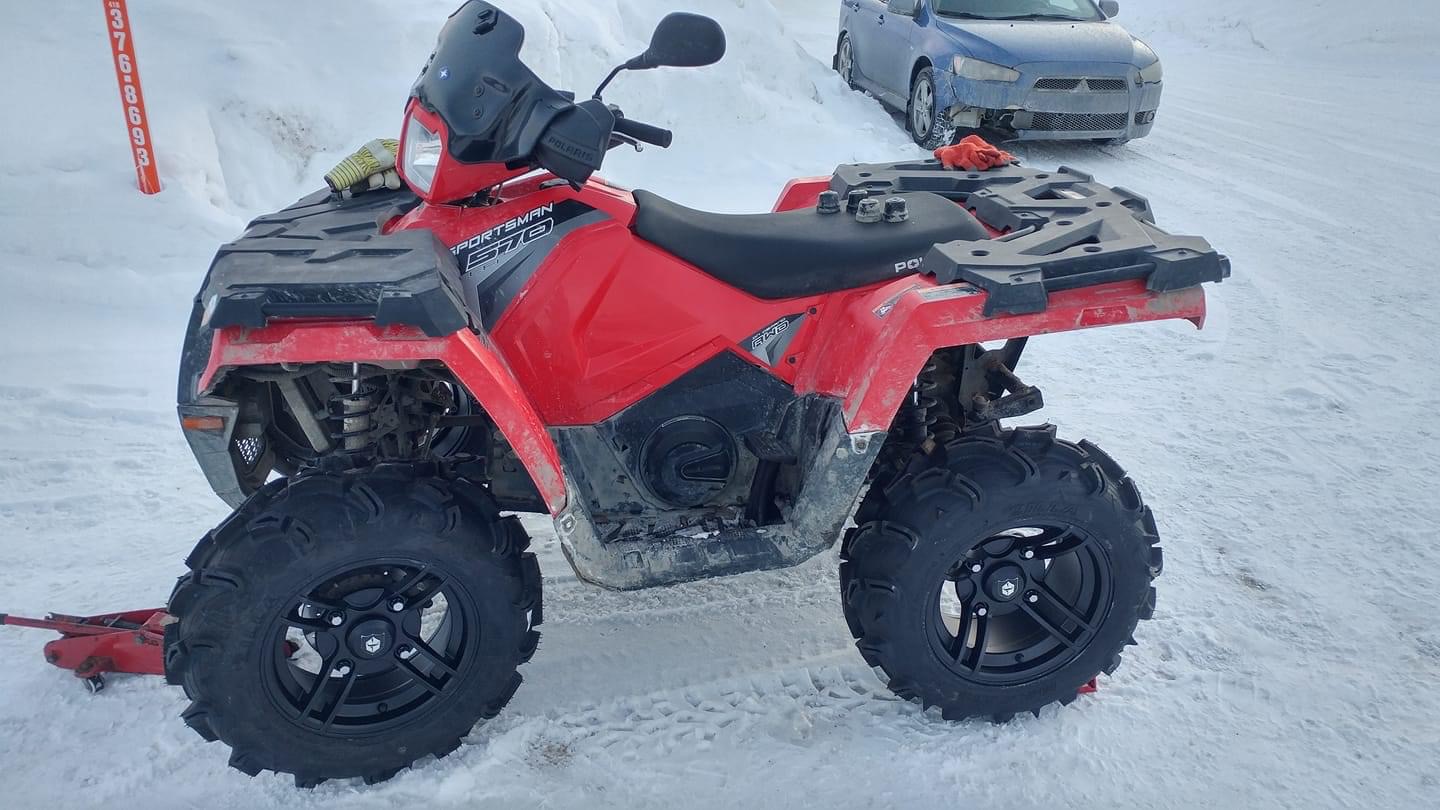
Maxxis Zilla tires are a must-have option for quad and side-by-side drivers seeking a lightweight tire with exceptional mud performance. These tires are known for their ability to provide maximum traction with minimal effort, making them perfect for use in extremely difficult conditions, even in packed snow.
Technically, the Maxxis Zilla is designed with a focus on weight reduction without sacrificing strength or durability. They use a special rubber compound that offers good grip while being resistant to wear. I’ve driven 21,000 km with my last set, and they are still usable for some time. The tire’s construction is also designed to provide good shock absorption, which is essential when driving on rough terrain.
The lugs on the Maxxis Zilla are aggressive and arranged to maximize traction in mud and soft terrain. Height and spacing of the lugs are carefully studied to allow effective mud evacuation, preventing the tire from clogging and losing effectiveness. Additionally, the number of plies varies depending on the model, offering different options in terms of resistance and load capacity.
Another advantage of the Maxxis Zilla is its versatility. Although they are optimized for mud, they also perform well on other types of terrain thanks to their balanced design. This means you can use them for your off-road adventures without having to change tires when you return to more stable surfaces. The quad vibrates a bit on asphalt, but you don’t feel it at higher speeds.
In Conclusion
We have seen that there are major families of tires for off-road vehicles, and none is fundamentally better than the others. It depends on the use. Trail, mud, or multi-purpose tires all have their strengths and limitations depending on the terrain and the user. The different tire brands presented here are given as examples only. There are hundreds of different models. It is up to you to choose what suits your driving style. Happy riding, and stay safe!

